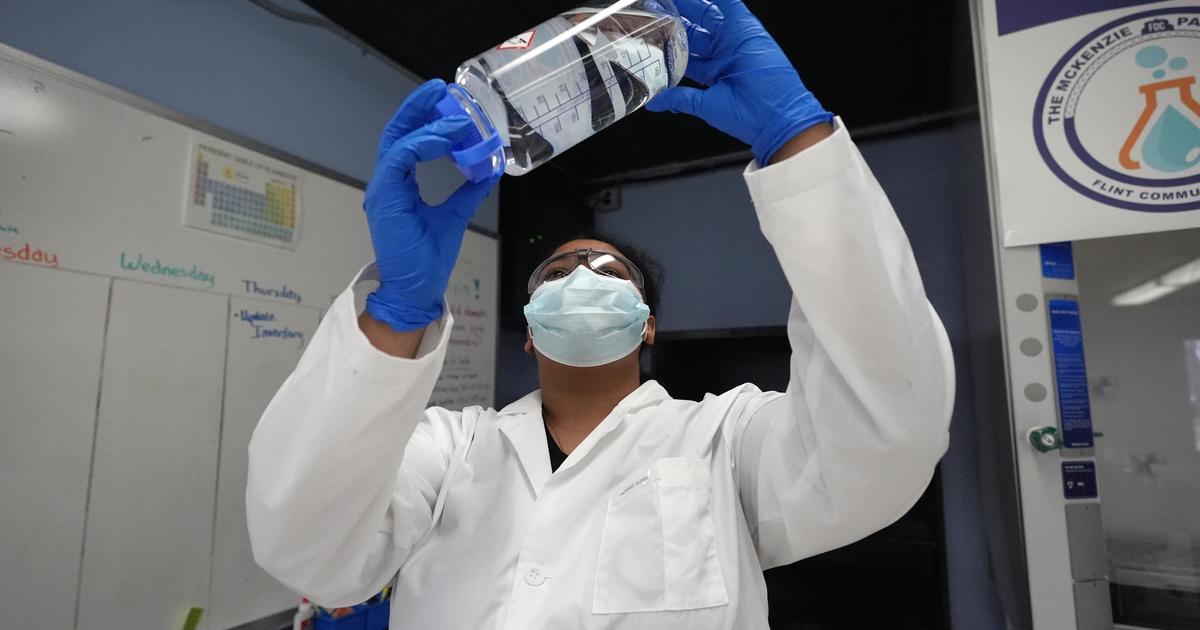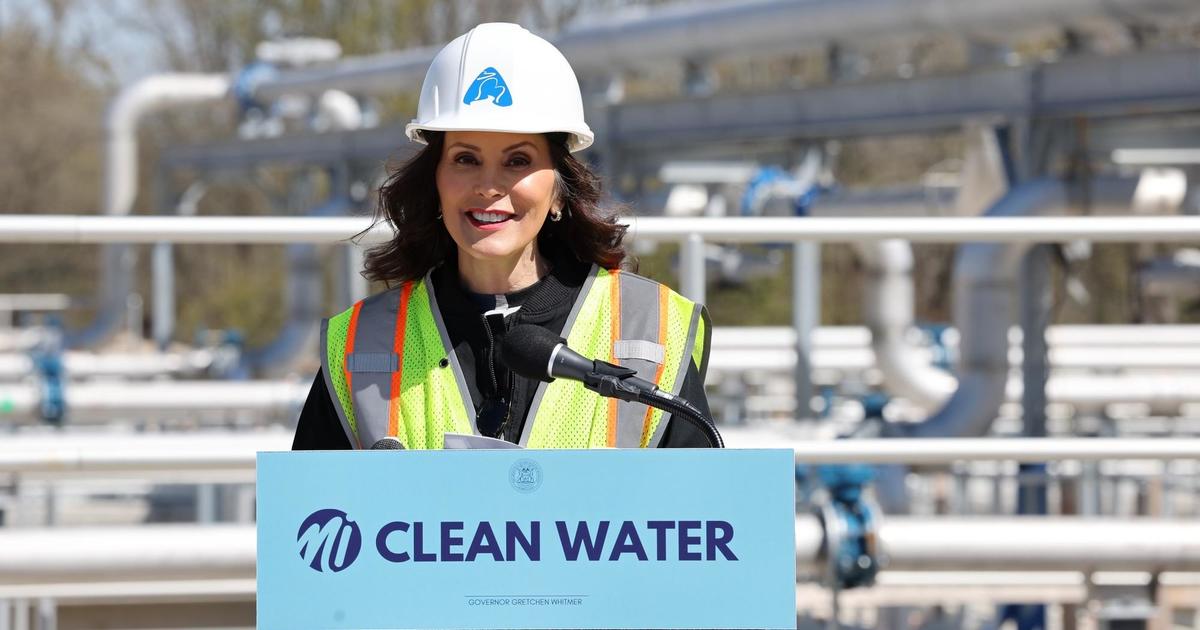More Charges Expected In Connection With Flint Water Crisis
FLINT (WWJ/AP) - Michigan's Attorney General will be announcing additional charges connected to the Flint Water Crisis.
"Another state employee will be charged with some sort of crime -- as part of an investigation which began in January," says Lansing Bureau Chief Tim Skubick.
Three people have already been charged in connection with the Flint water crisis.
Stephen Busch and Michael Prysby of the state Department of Environmental Quality and Flint utilities administrator Michael Glasgow are charged with tampering with evidence. Busch and Prysby are also charged with conspiracy, misconduct in office and violations of drinking water law. Glasgow is additionally charged with willful neglect of duty while operating the water plant.
Busch and Prysby have pleaded not guilty, while Glasgow hasn't appeared in court.
What's the most serious allegation?
The evidence-tampering charge refers specifically to 2015 reports on lead levels in water samples, and carries a maximum penalty of four years in prison.
Glasgow's attorney, Robert Harrison, said the charges against his client "are difficult to understand." He said Glasgow was a source for investigators, freely speaking over many days without a lawyer.
The charges suggest actions by the three went "above what would be the normal, perhaps imperfect, performance" of public employees, said Linda Fentiman, a professor at Pace Law School in New York.
A Timeline Of The Water Crisis In Flint
APRIL 2014: In an effort to save money, Flint begins drawing its water from the Flint River instead of relying on water from Detroit. The move is considered temporary while the city waits to connect to a new regional water system. Residents immediately complain about the smell, taste and appearance of the water. They also raise health concerns, reporting rashes, hair loss and other problems.
SUMMER 2014: Three boil-water advisories are issued in 22 days after positive tests for coliform bacteria.
OCTOBER 2014: A General Motors engine plant stops using Flint water, saying it rusts parts.
JANUARY 2015: Flint seeks an evaluation of its efforts to improve the water amid concerns that it contains potentially harmful levels of a disinfection byproduct. Detroit offers to reconnect Flint to its water system. Flint insists its water is safe.
JAN. 28: Flint residents snap up 200 cases of bottled water in 30 minutes in a giveaway program. More giveaways will follow in ensuing months.
FEB. 3: State officials pledge $2 million for Flint's troubled water system.
FEBRUARY: A 40-member advisory committee is formed to address concerns over Flint's water. Mayor Dayne Walling says the committee will ensure the community is involved in the issue.
MARCH 19: Flint promises to spend $2.24 million on immediate improvements to its water supply.
MARCH 27: Flint officials say the quality of its water has improved and that testing finds the water meets all state and federal standards for safety.
SEPT. 24: A group of doctors led by Dr. Mona Hanna-Attisha of Hurley Medical Center urges Flint to stop using the Flint River for water after finding high levels of lead in the blood of children. State regulators insist the water is safe.
SEPT. 29: Gov. Rick Snyder pledges to take action in response to the lead levels. It's the first acknowledgment by the state that lead is a problem.
OCT. 2: Snyder announces that the state will spend $1 million to buy water filters and test water in Flint public schools.
OCT. 8: Snyder calls for Flint to go back to using water from Detroit's system again.
OCT. 15: The Michigan Legislature and Snyder approve nearly $9.4 million in aid to Flint, including $6 million to help switch its drinking water back to Detroit. The legislation also includes money for water filters, inspections and lab testing.
NOV. 3: Voters elect newcomer Karen Weaver over incumbent Mayor Dayne Walling amid fallout over the drinking water.
DEC. 29: Snyder accepts the resignation of Department of Environmental Quality Director Dan Wyant and apologizes for what occurred in Flint.
JAN. 5: Snyder declares a state of emergency in Flint, the same day federal officials confirm that they are investigating.
JAN. 12: Snyder activates the Michigan National Guard to help distribute bottled water and filters in Flint and asks the federal government for help.
JAN. 13: Michigan health officials report an increase in Legionnaires' disease cases during periods over the past two years in the county that includes Flint.
JAN. 14: Snyder asks the Obama administration for major disaster declaration and more federal aid.
JAN. 16: President Barack Obama signs emergency declaration and orders federal aid for Flint, authorizing the Federal Emergency Management Agency and the Department of Homeland Security to coordinate relief efforts.
The announcement, scheduled for tomorrow morning at 11:30 a.m. in Flint. We'll have live coverage.
Stay with WWJ Newsradio 950 for more on this developing story.
(TM and © Copyright 2016 CBS Radio Inc. and its relevant subsidiaries. CBS RADIO and EYE Logo TM and Copyright 2016 CBS Broadcasting Inc. Used under license. All Rights Reserved. This material may not be published, broadcast, rewritten, or redistributed. The Associated Press contributed to this report.)



